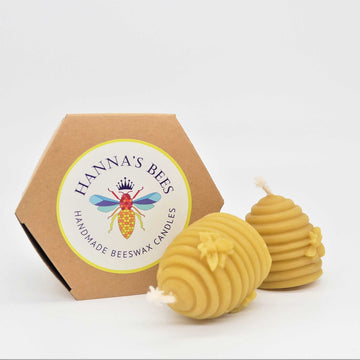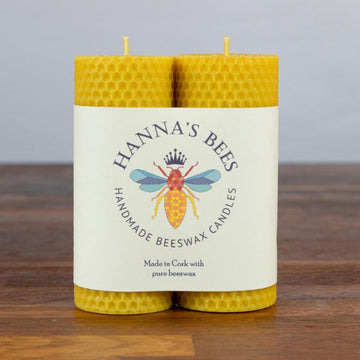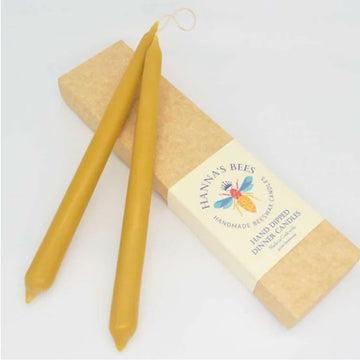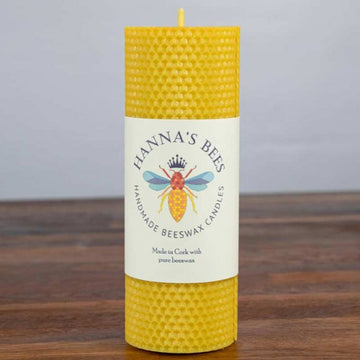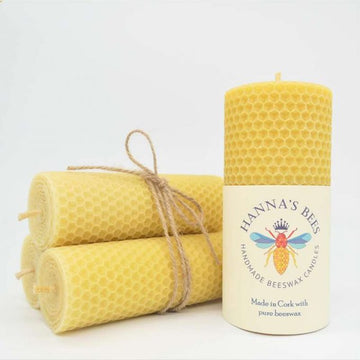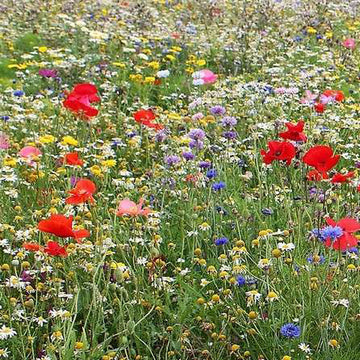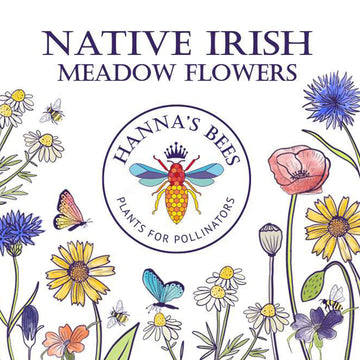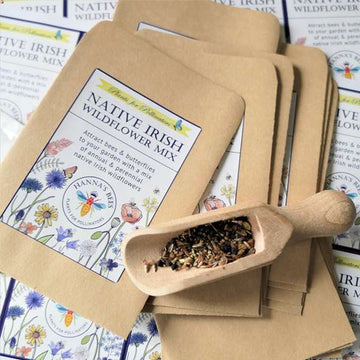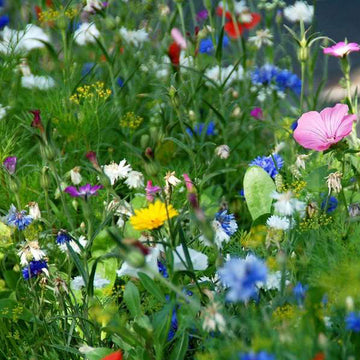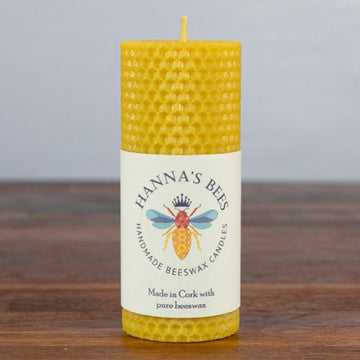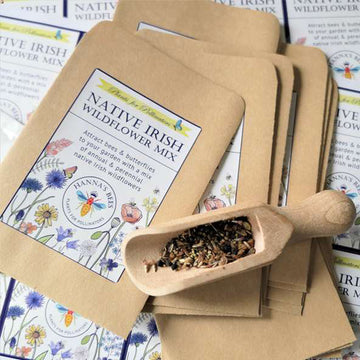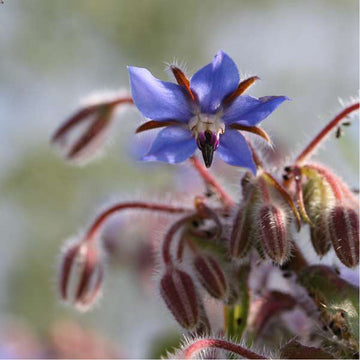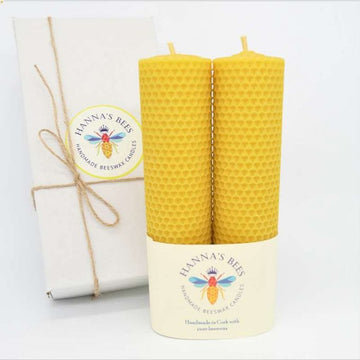If you regularly buy local Irish or organic honey, you already know that honey is good for you. In your quest to find the best honey possible, you might also have asked yourself why there is no such thing as Irish Organic Honey? As a beekeeper in Ireland, and the founder of Hanna’s Bees, a Cork based artisan business producing a range of delicious small-batch honeys and beeswax products, I'm here to help you answer that question!
But first, let’s start with looking at what we mean when we talk about local Irish honey and Organic honey.
What is Local Honey?
Local honey is honey that is harvested and produced in the same region where it is sold. This means that if you're in Ireland, local honey is honey that has been produced by bees that have foraged in the local area. Buying local honey has several benefits, including supporting local beekeepers and the local economy, as well as reducing the carbon footprint associated with transportation.
Many local beekeepers keep the Native Irish Honeybee, a species threatened by the importation of foreign bee species. Our native bee is perfectly adapted to our climate and produce honey even in poor weather.
It is often said that if you are suffering from hay-fever, you should eat local Irish honey containing local pollen. It is believed that by exposing your body to small amounts of pollen on a regular basis, it is then better able to handle large amounts of pollen in spring and summer. Although clinical trials have shown mixed results, many people suffering from hay-fever swear by local honey!
If you want to buy honey with a diverse mix of pollen, you should consider cut-comb honey and Wildflower honey. All Irish wildflower honeys will have much of the same types of pollen in it, with minor local variations.
What is organic honey?
Now, let's talk about organic honey. Organic honey is honey that is certified as having been produced without the use of synthetic pesticides or chemicals. This means that beekeepers who produce organic honey follow strict guidelines for beekeeping practices to ensure the honey meets the organic standard. These guidelines often include using only organic feed for bees, not using synthetic pesticides, and allowing bees to forage in areas that are free from chemicals.
All organic honey sold in Ireland is produced outside of Ireland.
Why is there no organic honey produced in Ireland?
If local Irish honey is so good, and being organic ensures that it has been produced according to sound organic practices, then surely, Irish Organic Honey would be the best honey possible?
Why then don’t we produce organic honey In Ireland?
Great question! This is because there is currently no organic certification available for honey in Ireland. Even if there was, the nature of bees means that they fly long distances to gather nectar for the honey. Hence, in order to produce organic honey, a large area covering several square miles surrounding the beehives need to be organic farm, forestry or completely wild, without chemicals. Because of the landscape and size of Ireland, this is simply not possible.
However, there are many beekeepers in Ireland who follow sound organic practices, so buying honey from these beekeepers is a great option for those looking for an alternative to imported honeys. This will not only reduce the carbon footprint of the honey, but you would also get the added benefit of those local pollens.
Labelling of honey: country of origin
Now, let's move on to labelling laws. Honey labelling laws require that the country of origin be displayed on the label. This means that if you see a jar of honey labelled as "Irish," it means that the honey was harvested and produced in Ireland. Similarly, if you see a jar labelled as "organic" but without a country of origin, it is imported from another country. Furthermore, many labels will state that the honey is a blend of EU and Non-EU honeys, but there is no information available of the countries of origin or the ratio of the mix.
So, when you're looking to buy honey, make sure to check the label to see where it comes from.
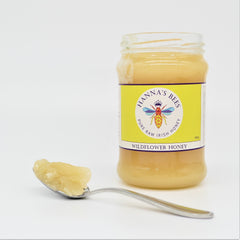
How can you tell if the honey is real?
It's important to note that it can be difficult to tell if honey is real or fake just by looking at it. the Some imported honeys are even intentionally mixed with other substances to increase their volume or make them appear smoother, making Honey one of the most tampered with foods on the planet. According to sampling results of imported honeys by the European Commission’s Joint Research Centre in 2021 and 22, 46% of the samples tested were suspicious to be adulterated, which means non-compliant with the general provision of the EU Honey Directive. (See Food fraud: How genuine is your honey? (europa.eu))
However, there are some steps you can take to ensure you are buying real honey.
First, buy from trusted sources such as local and Irish beekeepers or certified organic honey producers. All Irish beekeepers producing honey for sale have to be registered with the Department of Agriculture, Food and the Marine, who carry out regular inspections and sampling.
Second, check the label to see if it includes the country of origin.
Finally, check the texture and flavour of the honey - real honey will often develop a slightly crystallized texture over time and a distinct flavour which it gets from the different flowers the bees have been foraging on.
In conclusion, buying local honey from Irish beekeepers is a great option for those looking to support local businesses and reduce their carbon footprint. While there may not be organic honey produced in Ireland, buying from beekeepers who follow organic practices can help reduce exposure to pesticides and chemicals. When buying honey, remember to check the label for the country of origin and buy from trusted sources to ensure you are getting real honey.
Enjoy your delicious honey!
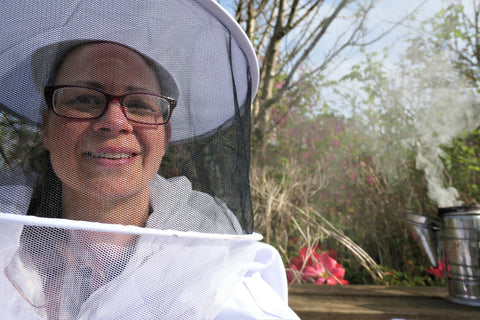
Hanna Bäckmo, founder of Hanna's Bees
If you want to learn more about bees and honey, visit Hanna's blog.




